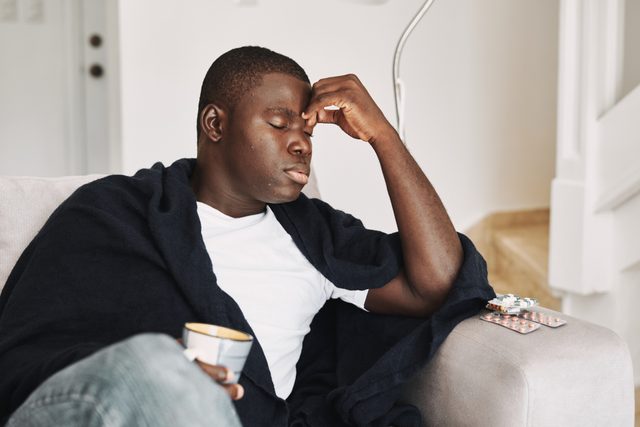
Help your body defend itself
Everyone wants to build a strong immune system to fight off infectious diseases. But how? The best way to stay healthy is to remember practical, usually low-cost tips and tricks that help your body defend itself. Here are a few mistakes many of us are making.
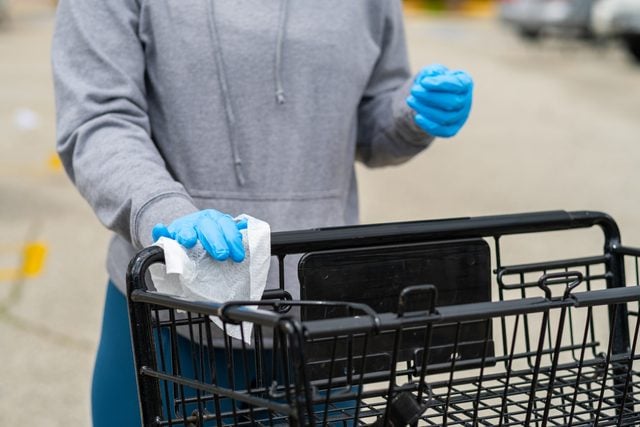
You forget that germs are everywhere
Now more than ever, you must avoid touching surfaces that might be contaminated with viruses or bacteria, recommends Sanjai Sinha, MD, Director of the Care Management program at Weill Cornell Medicine in New York City. He suggests that it’s smart to wear gloves when touching heavily used surfaces including grocery cart handles, cell phones, elevator buttons, and gas pumps. Avoid touching surfaces in areas where you’re more likely to be exposed, including public restrooms, public transportation, fitness centers, and schools—essentially anywhere there are groups of people who may spread infections. As much as possible, practice social distancing when in public settings. (Find out if wearing two Covid-19 face masks is better than one.)
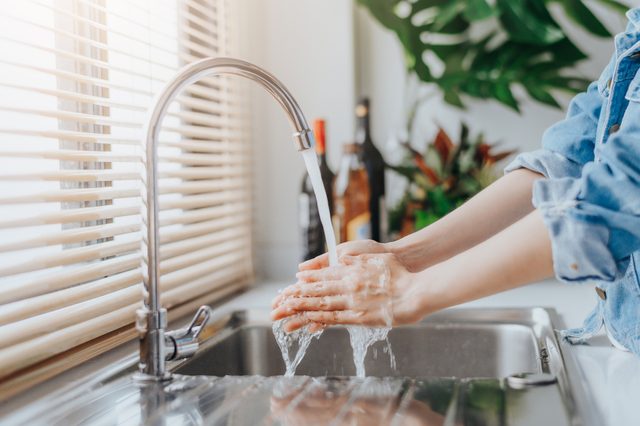
You don’t wash your hands frequently
Because viruses and bacteria can linger everywhere, you have to be vigilant about keeping your hands clean to prevent infectious diseases, warns Dr. Sinha. Washing your hands frequently with soap and water is the best technique, but if washing facilities are not available, a hand sanitizer can work. Just make sure you aren’t committing any of these common handwashing mistakes.
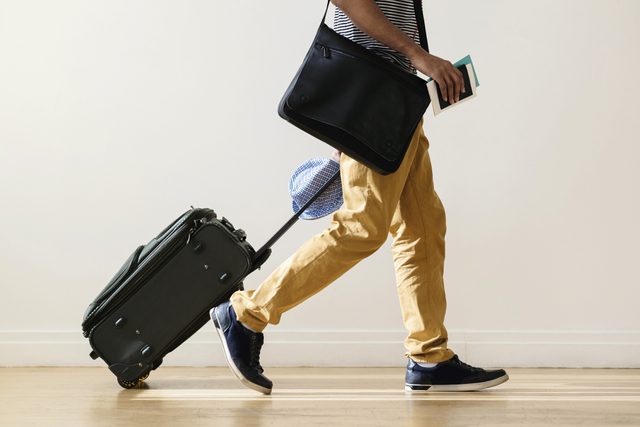
You fail to take caution while traveling
Although most people aren’t traveling right now, airplanes and hotels challenge your immunity because you’re exposed to more pollutants and infectious organisms. Pre-pandemic, air travel moved three billion passengers annually. It serves as a conduit for infectious disease spread, including emerging infections and pandemics, according to a 2019 article in the journal Microbial Ecology. When airline travel becomes relatively safe again, make sure to bring sanitizing wipes to clean tray tables, seats, and armrests on airplanes. When you arrive at your destination, don’t forget that the remote control, desk, and phone in hotel rooms can expose you to germs. Bring alcohol wipes for these surfaces and practice regular hand washing to help reduce your risk of getting sick. And try these 10 habits doctors use to avoid the cold and flu.
You overdo supplements
Many people are mega-dosing on vitamins and minerals thinking they’ll protect them from infectious diseases like Covid-19. That can backfire, says Seattle based registered dietitian Ginger Hultin, RDN, a spokesperson for the Academy of Nutrition and Dietetics. “While it’s great for people to be focusing on their health, too much of a good thing can be bad for you,” she says. For example, high levels of vitamin C—1,000 milligrams or more a day—can aggravate kidney stones and cause gastrointestinal distress. “People say ‘your body just pees it out,’ but that’s not true,” she adds, noting that very high doses of vitamins and minerals can potentially make you more vulnerable to disease.
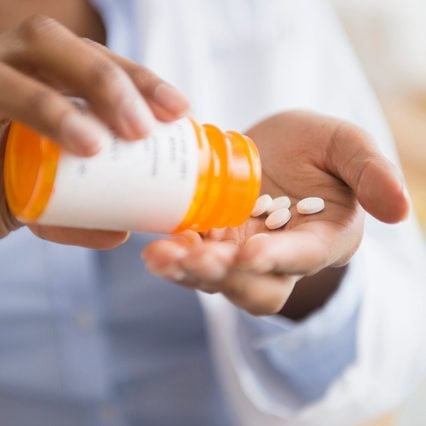
You overuse antibiotics
Antibiotics are for bacteria, and they won’t work against colds or flu. The overuse and misuse of antibiotics are key factors contributing to antibiotic resistance, says Dr. Sinha. When antibiotics destroy good bacteria, they can leave your immunity compromised. Research has shown that individuals who take antibiotics for chronic infections are at a greater risk for a weakened immune system. Speaking of which, be sure to learn if your immune system has been weakened from lockdown.

You drink too much
While there are potential health benefits to the occasional glass of wine or beer, downing a lot of booze can impair your immune system by interfering with the bone marrow’s production of white blood cells. According to a study published in Alcohol Research, alcohol is actually a toxin that promotes pro-inflammatory immune responses, impairs the body’s defenses, and reduces overall healthy functioning. Here are 17 simple ways you can cut back on drinking.

You’re not socializing enough
Even though social distancing is important, people who are lonely for extended periods tend to have a higher risk of disease and changes to the immune system over time. Here’s how to keep isolation from harming your health even when you have to avoid contact with others.

You need to drink more water
Your immune system may be at risk when your body runs low on fluids, especially if you become dehydrated. Not thirsty? Drink up anyway, and check out these 13 genius ways to drink more water.
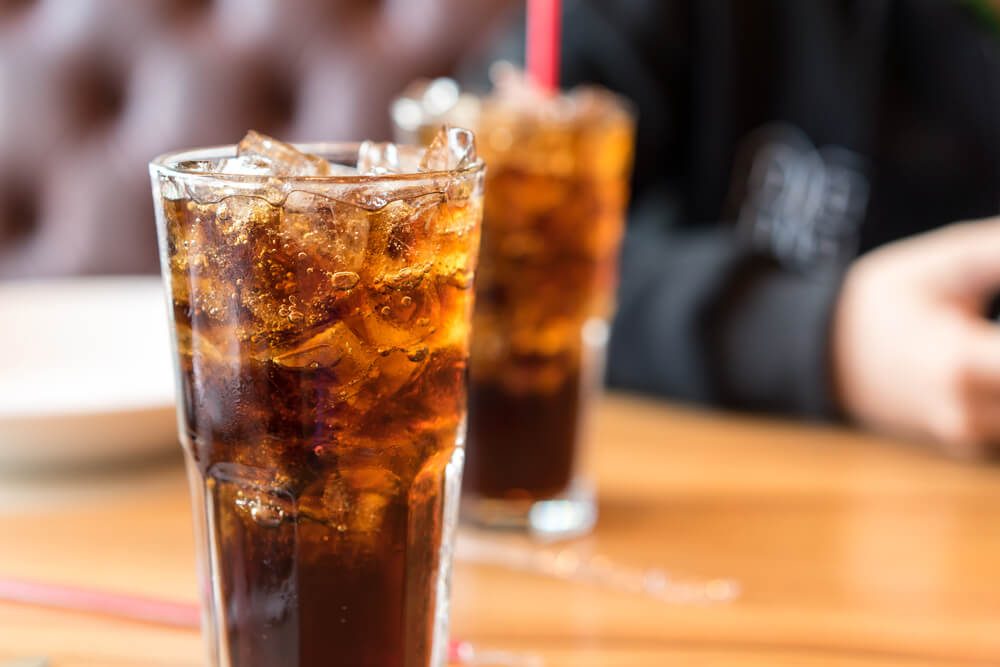
You overdo sweet stuff
A high-sugar diet creates inflammation and prevents your immune system from functioning properly, according to data published in Experimental Cell Research. Sugary drinks should also be avoided, and it’s best to stick to water to meet your hydration needs, notes Hultin. If you get bored with water, try adding a few slices of lemon, lime, or cucumber, she advises. Here are some more reasons to stick with water and avoid soda.
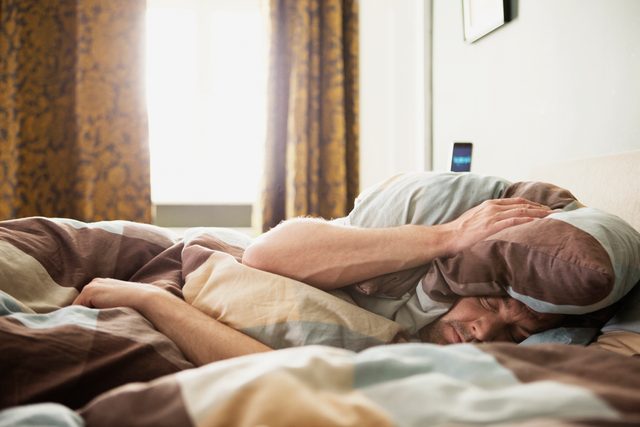
You’re not sleeping well
You know how you feel run down, even sick, when you don’t get enough sleep? It’s not just exhaustion. Research indicates that people who don’t get quality sleep—or fail to get seven to eight hours a night—have a weakened immune system and may be more vulnerable to infections like cold and flu. Use these sleep tips from doctors to get better rest.
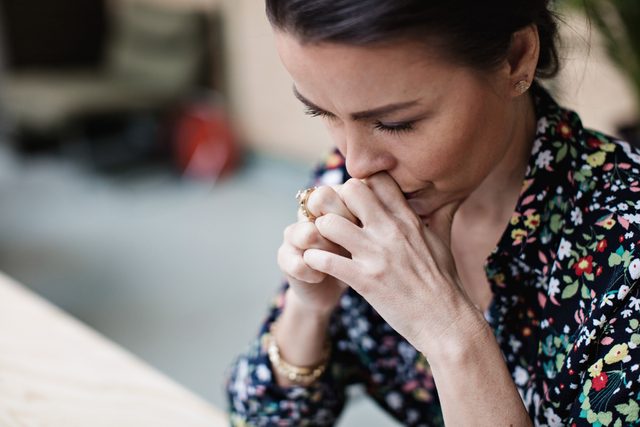
You’re not managing stress
Chronic stress can weaken the immune system. Here’s why: When you’re feeling stressed out, your body goes into fight-or-flight mode, releasing hormones and other chemicals that can make your natural defenses go down. Reducing stress in your life, which is easier said than done, can boost your overall health. Check out these 33 ways to manage stress and feel better.
